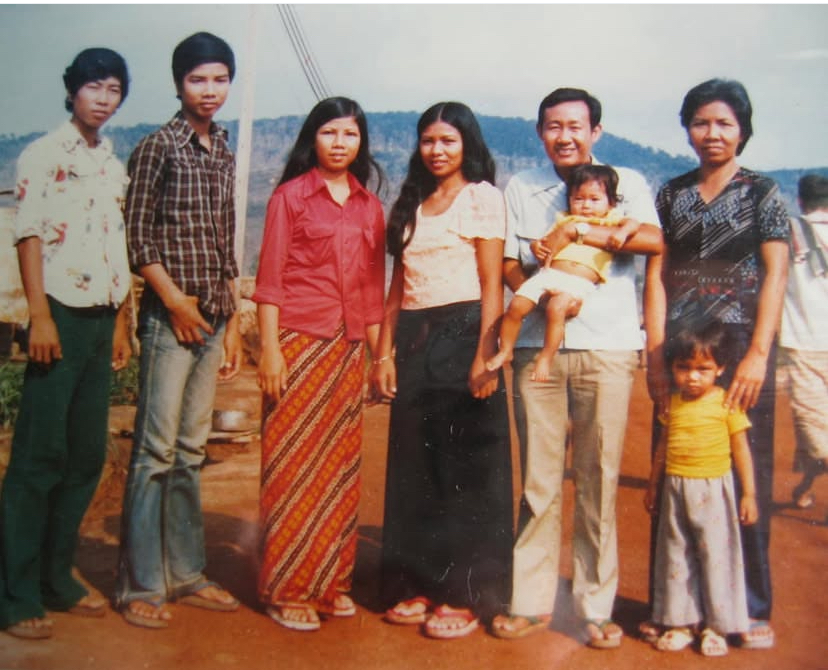Grief
In the aftermath of tragedy, what can a friend really say?
Two years ago, at 9:30 on Thanksgiving morning, my best friend’s husband was shot to death in his home. My friend had spent the previous evening watching classic movies late into the night and was still sleeping when she heard two shots. She remembers praying, as she wrapped a robe around her, slid into her slippers, and ran down the hallway, that she had heard only the sound of slamming doors. In the kitchen, a souvenir tray with the word Florida written in faded postcard colors lay on the counter: her husband liked to bring her breakfast every morning: a cup of tea and a bagel with cream cheese.
My friend’s husband, fourteen years older, had become a kind of surrogate father to me and to another friend who lost her father years ago. Peering at us from above his reading glasses, he parceled out levelheaded advice. We didn’t always seek or appreciate his guidance, but we trusted that he always had our best interests at heart. He had a big heart, but one shot gun blast stopped it. And, unbelievably, the man who was apprehended hours later is someone we know, someone he introduced me to, someone I had dated for a year and a half. He was a nice guy twenty-five years ago.
After the funeral, three of us, all friends from high school, set up a schedule, penciling in the days and nights we would each spend with our grieving friend. Without children or close family, she had no one else to console her. At nineteen, after one year of college and a whirlwind romance, she had married in a Las Vegas chapel and moved into the home her husband had shared with his former wife. My friend had never lived alone or worked a full-time job. She never paid the bills.
 For two months, we kept vigil, sleeping in the closet—spacious enough for all her clothes, shoes, and a twin bed—adjacent to her bedroom. She wanted us close. Sentimental and frugal, despite her crowded closet, she had saved clothes dating back to the seventh grade, including a brown winter coat she began wearing to the cemetery on her daily visits. At night for our protection, she would lock the door at the end of the bedroom hallway and secure the back of a small antique chair under the knob. Later, she got an alarm system and a permit to carry a gun.
For two months, we kept vigil, sleeping in the closet—spacious enough for all her clothes, shoes, and a twin bed—adjacent to her bedroom. She wanted us close. Sentimental and frugal, despite her crowded closet, she had saved clothes dating back to the seventh grade, including a brown winter coat she began wearing to the cemetery on her daily visits. At night for our protection, she would lock the door at the end of the bedroom hallway and secure the back of a small antique chair under the knob. Later, she got an alarm system and a permit to carry a gun.
She worried that she hadn’t cried. With deep sighs, she undertook daily trips to the post office; her husband had always taken care of picking up the mail. Cards and letters of condolence stacked up on the kitchen table. She read one a day—all the words of comfort she could bear. Her grief became as exhausting and inescapable as the nights we spent on the hard mattress in her closet. She repeated the events of that terrible morning in a perplexed voice: hearing the shots, finding her husband, touching the tip of his nose to see if it was cold, and waiting for the police. The details never changed. Perhaps if she told the story enough, she could convince herself it was true. Her husband was gone. Really gone.
Maybe it was inevitable that her despair and sorrow would one day turn to anger at us, her best friends. All our tentative suggestions for help—therapy, yoga, adopting a shelter dog—she dismissed with pursed lips, or rolled eyes, or another deep sigh. The slight furrow above the bridge of her nose deepened. Her usual clipped manner of speaking, with a hint of a babyish lisp, took on an abrasive, commanding tone. We were baffled but told each other it was an anxious attempt to take control of her life. By her own mournful admittance, she had depended on her husband for “everything.” She would draw out the sound of each letter in that word the way Patty Duke played Helen Keller in The Miracle Worker: W-A-T-E-R. “I think I’m in the anger stage,” she declared. We kept silent.
The trial, at least a year away, maybe longer, consumed her, as did so many other unanswered questions. My lip-biting came to a halt one night when a phone conversation turned tense because I had misunderstood something she said. “No, no, no,” she wailed like a petulant child. We bid each other stiff goodbyes. Hurt feelings and my own stubbornness kept me from calling her for two weeks. I did, however, keep up a steady stream of calls to my two other friends, comparing notes about their own frayed conversations and visits: “How did it go?” we would whisper—as if our friend were sitting in the next room—and “What did she sound like?” Since then, our conversations have been without overt conflict, but the long pauses frustrate me. I wince when I ask what she is doing with her time, fearing the predicable and deeply sighing answer: busy with the mail, getting the roof fixed, eating alone at her kitchen counter.
I have always been proud, perhaps too proud, of my self-reliance, maybe because it took me years to muster. When I was forty-two, the end of a thirteen-year relationship had left me reeling. A few months after the break-up, I had two flings, mostly out of my desire to feel wanted and needed. My desperation was frightening, even to me. Later, I met a man who was perfect, except he still lived with his former girlfriend and kept his relationship with me a secret from her. It took me three years to walk away.
Now, ten years later, I eat alone, often at my kitchen sink, and watch the birds flitting around the feeders in the backyard of my small brick house. I have two dogs who take up most of my time and, at night, my bed. I’m nurturing a green thumb, and I am happy. But it’s too soon to tell my friend that she will be happy again, too. I don’t need to tell her that grief is inescapable and inexplicable, and that, in the end, she will have to find her own way.
Sometimes the words we speak in a determined effort to ease another’s grief fail miserably. One day while I was talking with my friend at her kitchen table, our conversation drifted off, but I didn’t feel the panicked need to fill the silence. She looked at me and offered a tentative smile. Her husband was killed across a narrow hallway in the room next to us. She keeps the door open always, not so much to remember, but to keep those awful moments from darkening all the doorways of the house her husband built for her; the house she can’t imagine ever leaving. Maybe I am learning to share in those silences, too, tempered now with bitter sweetness. I smile back and let the silence take its course.
Copyright (c) 2012 by Anne Delana Reeves. All rights reserved. Reeves, a regular Chapter 16 contributor, lives in Columbia, Tennessee.


